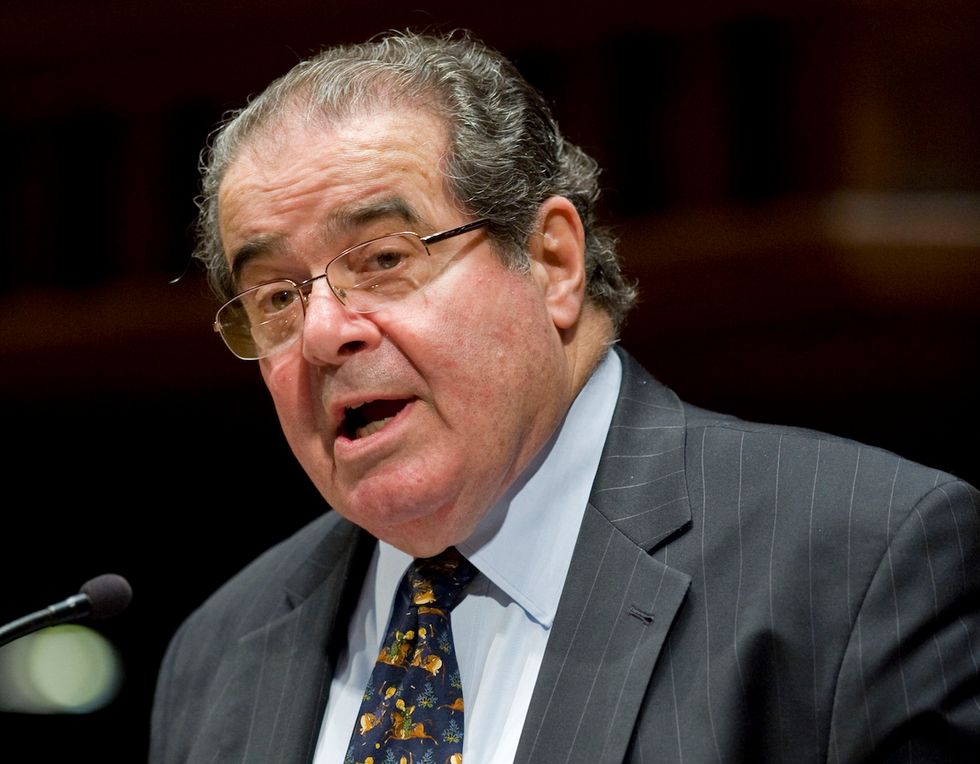
Former Supreme Court Justice Antonin Scalia (AP Photo/Jessica Hill, File)

When Donald Trump won the White House, there were many immediate legal hurdles he had to overcome, and he has dispatched with most of them quickly and without much fanfare. Save one. And on that one, he might consider taking the advice of a man he says he greatly admired: late Supreme Court Justice Antonin Scalia.
The lingering problem Trump faces has to do with his apparent conflicts of interest when it comes to his business empire and how it aligns or conflicts with his newly minted political influence. Take, for instance, his current negations with the German financial outfit Deutsche Bank to restructure his loans there. He could make a windfall in profit from the restructuring, and it's all perfectly legal. The catch? Deutsche Bank is also being investigated by the U.S. Department of Justice and facing potentially billions of dollars in fines.
So the conflicts of interest are very real, and that's just one example. Which is why the call for Trump to divest himself of his business interests has not gone away and will probably grow louder as inauguration day approaches.
And that's where a memo written 40 years ago by the late Scalia could offer sound advice as the President-elect assumes office.
In a memo to the Ford White House dated Dec. 16, 1974, Scalia, who was assistant attorney general for the Justice Department’s Office of Legal Counsel at the time, addressed questions about presidents and conflicts of interest. He argued that the president and vice president were technically exempt from regulations designed to prevent conflicts of interest — but he also said the president should consider voluntarily complying with these laws to avoid blistering criticism.
Scalia's memo makes it clear that the late justice believed it "would obviously be undesirable as a matter of policy [for a president] to engage" in business dealings prohibited to other executive branch employees. "Failure to observe these standards will furnish a simple basis for damaging criticism, whether or not they technically apply," Scalia wrote.
And therein lies the basis for argument: Trump is not technically mandated to divest himself of his business interests, and he knows it. But as Scalia noted, it would look very, very bad if he chose not to, despite some conservative thinkers, as the Daily Beast points out, taking a softer approach to the issue:
Hans von Spakovsky, a senior legal fellow at the conservative Heritage Foundation, said there’s a good reason the president and vice president are exempt from conflicts of interest laws: They can be voted out of office if they become corrupt, while federal employees aren’t directly accountable to voters.“Presidents are only temporarily in the federal government,” von Spakovsky said. “There is no reason to require them to entirely sell their businesses or other assets to pauper themselves and make it impossible for them to earn a living when their terms are done.”
It will certainly be interesting to see if Donald Trump can "Make America Great Again" by proving he has no interest in financially benefitting from his own political influence. After all, that was something he was highly critical of in his opponent Hillary Clinton, even going so far as to call it a "criminal enterprise." It remains to be seen if he'll apply the same standard to himself.